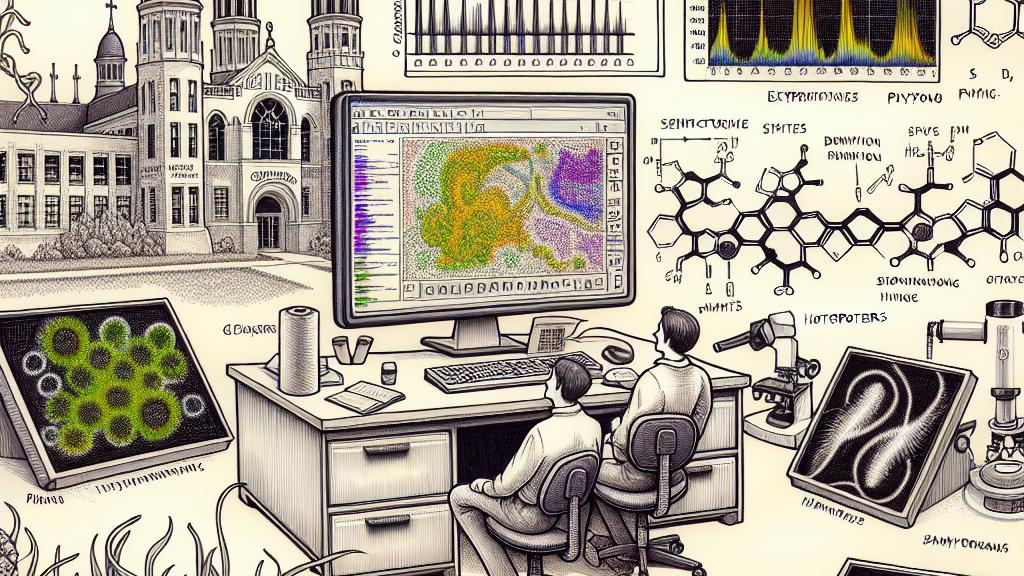Decoding Algal Gene Expression with Open-Source Technology
Overview
- Discover an innovative open-source tool that transforms algal gene expression analysis.
- Reveal fascinating new findings on histone modifications critical for gene regulation.
- Collaboration across leading institutions boosts our understanding of algal genomes.

Introduction to the Research
In an impressive breakthrough for biological research, scientists have launched an exciting new open-source tool named pyMS-Vis. This tool represents a significant advancement in our ability to rapidly decode algal gene expression patterns. Developed through a collaborative effort primarily at the Danforth Plant Science Center and Saint Mary's College, pyMS-Vis leverages advanced mass spectrometric techniques to analyze histone proteins in the alga Chlamydomonas. By exploring the intricate relationships between gene expression and protein dynamics during the cell cycle, researchers are now equipped to unveil the complexities of algal biology in ways previously thought impossible.
Histones and Their Role in Gene Expression
Histones are not just essential proteins that package our DNA; they are dynamic regulators of gene expression, heavily modified with chemical tags that create a complex signaling system. These modifications determine which genes are activated and when. One captivating example presented by the pyMS-Vis tool is the discovery of surprising variations in histone proteoforms during crucial phases of the Chlamydomonas life cycle. These findings have upturned established assumptions about histone consistency, revealing a more nuanced picture of histone modifications. With the ability to analyze these changes quickly, pyMS-Vis stands out as a necessary asset for scientists aiming to navigate the rich tapestry of biological processes and gene regulation.
Significance of the Findings
The implications of this research extend beyond traditional academic boundaries; they open new doors for agricultural innovation and environmental sustainability. Decoding the unique histone signatures that control gene expression can lead to the cultivation of crops with enhanced traits, increased resilience, and improved adaptability to climatic challenges. Furthermore, this collaborative research model fosters an inclusive scientific community that encourages diverse participation and knowledge sharing. Ultimately, pyMS-Vis not only embodies technological advancement but also marks a shift toward accessible research, fundamentally enriching our understanding of life at a molecular level and empowering future discoveries that could substantially benefit humanity.

Loading...